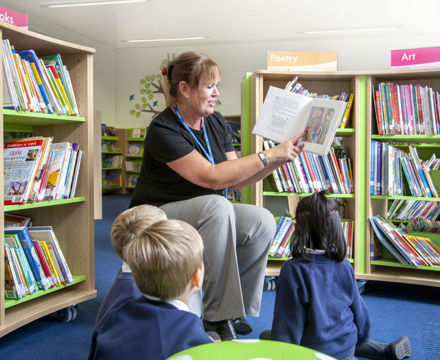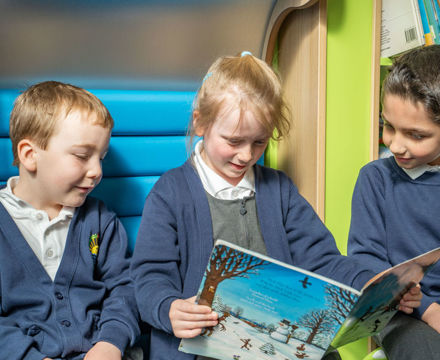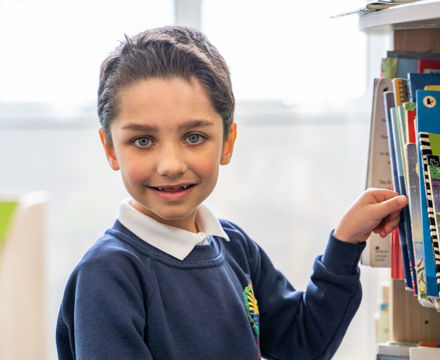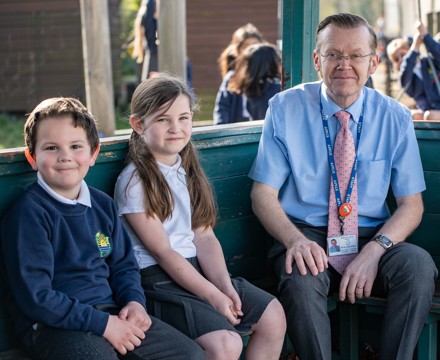Spring Term 2026

Year 1 Word Aware words for the Spring TermYear 1 curriculum overviewYear 1 Parent Information Slides 2025
Year 1 End of Year Expectations
Year 1 and 2 Common Exception words
Downloadable Phase 2, 3 and 5 Grapheme mat from Little Wandle
Year 1 Phonics Screening check information -Year 1 Phonics Screening Check Slides - updated for 2025
Provision in Year 1
In Year 1, we continue to build upon the Early Years approach by following a similar learning style to Reception, especially during the autumn and spring terms. Children are given a set of 'must do jobs' that link to national curriculum objectives and are designed to help them reconsolidate their learning. During this time, they work in small focus groups with their class teacher, where teaching is tailored to their individual needs while still meeting the learning objective.
Children also have access to the middle room, where they can engage in creative, phonics, and fine motor skill activities, as well as the outside area which is shared with Reception. This balance of structured and independent learning continues until the summer term, when we begin to transition into a more formal learning style in preparation for Year 2.
English
In English we immerse ourselves in exciting topics to inspire our speaking and listening, writing and reading. We use storytelling, drama and role play to bring our writing to life! Through our topics, we learn about the ingredients of a sentence and how to use punctuation. We also focus on the fundamentals of early writing, ensuring children develop the correct posture, grip their pencils correctly, and master the basics of writing labels, captions, and simple sentences before progressing to adding more detail.
Interactive, fast-paced phonics sessions following the Little Wandle programme are taught daily to support reading, writing and spelling.
Children enjoy developing a repertoire of skills to enhance their love of reading through group reading sessions twice a week: one session focusing on decoding and prosody, and the second focusing on comprehension. This is further supported through individual reading with their teacher, teaching assistant and volunteer readers, as well as through library visits. We use decodable books matched to each child’s level to support their varied learning needs. Children are also expected to read and spell a specific selection of ‘common exception words’. These are words that do not always follow phonics rules and must be learned by sight.
Maths
We develop a love of maths through carefully planned, interactive and practical lessons. Following the National Curriculum and the White Rose Maths Scheme, we aim to equip children with the understanding of mathematical skills and concepts to be able to apply them confidently in real-life contexts and through problem-solving activities.
We teach maths in mixed ability classes, with activities designed to challenge every child. We also offer consolidation groups for those who may need extra support. Children know how to succeed and are given timely feedback and next steps in learning. A wide range of manipulatives are available to support children’s independence and perseverance when solving problems.
Science
During Year 1 children learn to use practical scientific methods, processes and skills. These include making observations, performing simple tests, and gathering and recording data to help answer questions.
They will explore animals (including humans), plants and trees, seasonal changes and materials. We encourage children to be inquisitive and curious about the world around them and to ask questions to extend their knowledge and understanding.
Spiritual, Moral, Social and Cultural Development (SMSC)
SMSC is embedded throughout our curriculum and school values. As a whole school we develop British values through our five school values of resourcefulness, resilience, reflection, responsibility and respect. We teach these through assemblies, weekly circle times and school council.
We promote the British value of democracy through having class representatives on our school council. In Year 1, we aim to foster within each child a sense of enjoyment and excitement in learning about themselves, others and the world. We use our outside learning environment and exploration of the local area to enhance our curriculum and create a sense of belonging.
In weekly RE lessons, we encourage reflection on our own beliefs and the beliefs of others. We regularly consider and understand the consequences of our own and other people’s behaviour and actions, including understanding bullying, through circle time, role play and puppet work. This is reinforced by celebrating positive behaviour choices through class reward systems, golden tea party and celebration assembly.
Top Tips for Year 1 Parents
- Look for opportunities to talk about numbers. If you see numbers, can your child read them? What is the next number, or the one before? Use vocabulary such as more/less/fewer/most/fewest. Use journeys to practise counting on in their head, counting in 2s, 5s and 10s forwards and backwards.
- Share books with your child – read to them and talk about the story. Discuss what you like/dislike about the books. Try to use a selection of questions to encourage your child to infer from the text (e.g. Did Callum do the right thing? What makes you think that? How did everyone feel about the decision he made?).
- Read every day for 5 to 10 minutes – regular practice is vital to support progress. Those who read daily are more likely to become confident readers by the end of Year 1.
- Practise reading and spelling the first 100 High Frequency words at speed to build fluency.
- Encourage correct tripod pencil grip – the more a child holds their pencil correctly, the more natural it will feel.
- Encourage correct letter and number formation when writing at home. If your child reverses letters, ask them to re-write it several times to build fluency.
- Encourage them to use their phonics to spell words rather than giving them the correct spelling.
Homework
You can find our KS1 and KS2 Homework Policy here.
Our approach to homework is one where we believe it should complement learning in school and not be a stressful experience at home. Parents are key educators in their children’s lives and have a critical influence over their learning.
In the early stages of school life, we suggest setting aside at least 10 minutes daily to talk about learning, read together, play games and develop self-help skills.
As children move through the Primary phase, they will begin to have more formal tasks such as learning multiplication tables, spellings and projects, and will be expected to work for longer periods with increasing independence.
For the full version of the spelling lists, please click on the following link:
To find out more about the curriculum we follow, please click on the following link:









